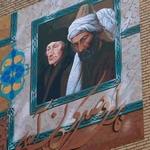The Relevance of Dutch History, or: Much in Little? Reflections on the Practive of History in the Netherlands
DOI:
https://doi.org/10.18352/bmgn-lchr.7114Keywords:
Identity, Cultural historyAbstract
This essay presents a series of reflections on the relevance of Dutch history. Taking different angles of approach, it examines in particular the historical image and self-image of the Dutch and the nation’s cultural identity; the role played by the heritage issue in the rise of the new political nationalism; the fascination of foreign historians for Dutch history and their influence on Dutch historiography itself; the role of language in history-writing and the question of whether ‘relevance’ is a meaningful category at all for historians.
To conclude, four great themes of Dutch history are identified as of supranational relevance: water management; economy and society, in particular capitalism and colonialism; culture and intellectual life, tolerance and secularity, in particular – but not only – in the early modern era; and the national ambition to show the world an exemplary route to modernity.
This article is part of the special issue 'The International Relevance of Dutch History'.
Downloads

Downloads
Published
Issue
Section
License
Authors who publish with this journal agree to the following terms:
a) Authors retain copyright and grant the journal right of first publication with the work simultaneously licensed under a Creative Commons Attribution 4.0 International (CC BY 4.0) that allows others to share the work with an acknowledgement of the work's authorship and initial publication in this journal.
b) Authors are able to enter into separate, additional contractual arrangements for the non-exclusive distribution of the journal's published version of the work (e.g., post it to an institutional repository or publish it in a book), with an acknowledgement of its initial publication in this journal.
c) Authors are permitted to post their work online (e.g., in institutional repositories or on their website) prior to and during the submission process.
Authors are explicitly encouraged to deposit their published article in their institutional repository.







